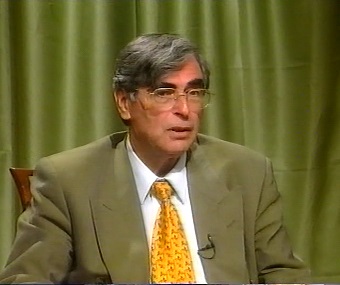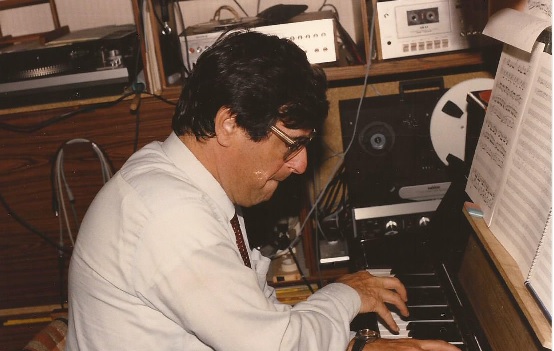
A Night of Destiny
When I began planning my first solo disc, World Keys, my work with the Silk Road Ensemble had inspired me to want to take that experience, that cultural way of looking at music, and put it into a solo piano context. After all, the piano – a cornerstone of Western classical music – has an incomparable range and dynamics, and a pliant tone that is capable of evoking other instruments. I wanted to give voice to modern composers from countries not usually associated with the piano, who express their distinct cultural heritages and musical worlds through this versatile instrument. So, with the piano as ambassador, I sought new music that would enable a polyphony of musical and cultural voices. It was at the Library of Congress that I discovered La Nuit du Destin, composed by Dia Succari.
Born in Aleppo, Syria in 1938, Dia Succari began studying music with his father before entering the Conservatoire National Superieur de Musique de Paris at the age of 13. His education there focused on traditional Western music theory, harmony, counterpoint and fugue – and included the study of composition with Oliver Messian. He became a noted teacher authoring numerous educational books and materials, and was a professor at the Damascus Conservatory, the Conservatoire National de Région de Paris, the Conservatoire de Suresnes, and the Université Paris Sorbonne. As a composer, he realized new possibilities in Arabic music, finding his inspiration from his homeland and the surrounding Near East. One immediately recognizes his use of native rhythms and traditional folk themes; indigenous instruments such as the santour (hammer dulcimer); and maqam, a system of modal music that is based in Persian and Arabian tradition. His catalog includes hundreds of works written for solo instruments, magnetic tape, choir, orchestras, voice, and various chamber music ensembles.
Dia Succari composed La Nuit du Destin (The Night of Destiny) for solo piano, an instrument not usually associated with Syrian music. It’s title refers to the night the Heavens sent down the Quran, revealing their verses to the prophet Muhammad. To Muslims, the importance of this night of prayer and spiritual illumination is without equal, and it is celebrated during the last days of Ramadan. In the Islamic faith, the blessings and mercy of God are so abundant on this night, that any act of worship one performs on it cannot be equaled during an entire lifetime.
In the opening of La Nuit du Destin, Dia Succari achieves an effect of wonder and beauty by combining the traditional style of Western composition – where notes and rhythms are specifically notated – with melody and sonority based on maqam, a type of melody only, that has no defined rhythmic organization. In the interior sections the pianist has the liberty to improvise in a style called taksim. The timber of the taksim sections call forth Persian instruments such as the santour – in the soft left hand of the piano – and the plucked intensity of the ud, a Persian lute. In La Nuit du Destin, emotional power derives not from the development of it’s lovely themes, but from the repeated incantations and improvisations of he core melodic material. Performing this piece is deeply personal, and most important is the moment of enlightenment in the middle of this work, where the music just stops and you listen to the silence, as if reaching the apex of understanding. It’s stunning – almost like a ball that’s thrown in the air, and when it reaches its highest point, it just stops and hangs there.
Dia Succari was active as a composer, teacher and conductor in Paris from 1969 until his death in2010. He melded the melodies and rhythms of Arabic music in a Classical language influenced by composers such as Debussy, Ravel and Faure. But I think his real genius lies in creating a distinctive, new sounding music that is neither European or Arabic, but entirely his own. Oliver Messian said his music was “based on Arabic rhythms or styles without ever falling into the folkloric reconstruction, but on the contrary – with a gift of life and invention.” And I totally agree.
I presented the World Premiere recording of La Nuits du Destin on my first solo disc, and I invite you to experience a Night of Destiny for yourself. Have a listen! And I’ve included a few photos of Dia Succari and a brief video of him at the piano with friends.

